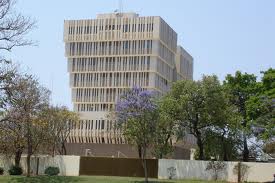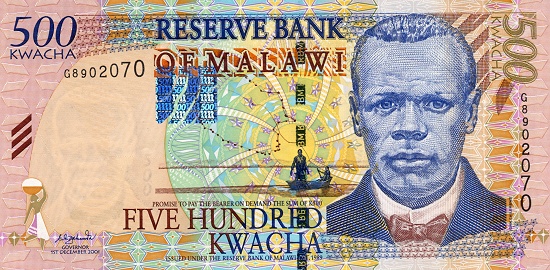Three companies disqualified in the $76.5 million (K33.7 billion) Indian Exim Bank loan funded construction contracts have attacked Malawi’s Ministry of Finance (MoF) for alleged irregularities in awarding of contracts to Apollo International.
The companies have written the Indian Government to intervene, stop three projects under the tender and allow for re-evaluation of the bids—a process they believe was not handled fairly.
As one of the conditions for the loan, India told the Malawi Government that only Indian companies would supply goods and services funded by the facility.
The contracts, according to a December 2012 tender, are for designing, supplying, installation and commissioning of a sugar processing plant in Salima; irrigation networks in Salima, Karonga and Mangochi and strategic fuel reserves in Lilongwe, Blantyre and Mzuzu.
All these have gone to Apollo, a company that was also awarded two other projects worth $80 million (about K32 billion) by MoF in previous Indian credit lines, including the buying of Youth Enterprise Development Fund (Yedf) equipment currently lying idle in warehouses in Lilongwe.
The three complaining companies—Kirloskar Brothers Limited (KBL), Hi Tech Engineering Limited and Fedders Lloyd Corporation Limited—have written various offices within the governance structures of the Indian Government.
Letters of complaint
The firms are also questioning why Apollo was given the contracts in fields they are not expert in and have no experience when other companies among the bidders possess requisite knowledge.
Letters from all the three companies were addressed to Shri Salman Khurshid Ji, India’s Minister of External Affairs in New Delhi in the last week of March this year.
Fedders wrote the Indian Minister on March 28, Kirloskar penned him on March 29; and Hi Tech Engineering was the last on March 30 this year.
Fedders bid for all the three contracts whereas Hi Tech Engineering competed for the sugar processing plant and Kirloskar joined in the irrigation network tender.
Among other things, Fedders note that they were the lowest bidder in the fuel storage tender but could not be considered.
“…And having the expertise and experience to fulfil a contract of this magnitude to the complete satisfaction of all, we have been sidelined by the unfair practice,” reads the letter signed by Fedders Whole Time director S.S Dhawan.
He claims in the letter that the evaluation report, based on which all other 14 companies were disqualified, shows that documents have been tampered with by the evaluation committee which, he says, is an “absolute violation of the trust and confidence placed on the committee.”
Fedders quoted the fuel reserves project at $15 958 770.11 (K6.5 billion) whereas the preferred bidder (Apollo) charged $30 987 832 (K12.5 billion).
The fuel reserve contract is budgeted at $26.5 million (K10.6 billion), according to Treasury spokesperson Nations Msowoya.
Tendering process
In a telephone interview from India, Fedders managing director Naresh Soral confirmed his firm’s letter to the Indian Government, but said he would provide a detailed answer in a questionnaire, which we sent to him on Monday. At press time on Friday, we had not received the promised written response.
On his part, KBL vice-president and head of corporate global marketing and communication Shipra Tripathi says in his letter that “we feel the process has been subverted and requires rectification.”
KBL alleges that the bid evaluation team removed a copy of the $25 million proof of line of credit from Bank of India to eventually disqualify the company on that basis.
KBL, which bid for the irrigation project, have their credit line from Bank of India in Pune dated January 18 2013.
“I request you to kindly take this up at the appropriate level with the Government of Malawi and request for a re-bidding for this tender,” he wrote to India’s External Affairs Ministry.
“This is also to bring to your notice that KBL is the only company that has an established track record and success story in African region in the context of design, supply and commissioning of irrigation network,” Tripathi said.
KBL’s website shows a success story in a similar project in Senegal. They also have heavy presence in South Africa through their subsidiary SPP Pumps.
In its letter, Hi Tech Engineering requests the Indian Government to deal with the matter in the same way it formerly dealt with similar cases in Ivory Coast and Mozambique.
“Examples of Ivory Coast, Mozambique, etc, are a perfect case where the Government of India has shown their stance in fairness at the beginning and the borrowing countries have responded effectively,” says the Hi Tech letter detailing [some] perceived ills.
Apollo representative in Malawi, Hermat Gupta, has not been answering his mobile phone for the past month we tried to reach him.
Two weeks ago, Ministry of Finance’s Msowoya defended the evaluation process, emphasising that Apollo scored higher than the rest in all the three bids.
“The technical evaluation team did a meticulous job of reviewing all the bids that were received from the Indian companies based on evaluation criteria that was developed based on the information that was requested in the bid documents,” he said.
The grey areas
A Weekend Nation review of tender documents, including an evaluation report, raised a number of questions of which Msowoya said “I will not attempt to answer individual questions, but rather just give you the whole story about the India Line of Credit Tenders.”
Documents show that the tender paper work did not detail the evaluation criteria such that the evaluation team had to come up with one after receiving of bids had closed.
“Members of the team noted the need to develop evaluation criteria after observing that the tender document did not detail the selection process. Because of the nature of the procurements, members agreed to adopt Quality Based Selection Method,” reads an evaluation report.
The documents also show that other companies were failed based on instruments that were not in the tender for specific projects of the three.
In addition, the Ministry of Finance’s evaluation team allegedly inserted what was not previously in one bid document for the preferred bidder, Apollo, but did not give the same treatment to the others.
While Msowoya clarified that Apollo was awarded the three contracts based on their technical stature, a closer look at the available documents raises questions.
There were 15 all-Indian companies whose bids were evaluated for the three projects and Apollo applied for all the three.
For the strategic fuel reserves, eight—Arunodey Steel, Oriental Structural Engineering, Key Bouvet Engineering, Fedders Lloyd Corporation Limited, Surrendra Engineering, Lucky Exports, Furnace Fabrica and Apollo International—participated.
For the sugar processing project, nine companies sent in their bids, including Apollo, Spee Techno Project, Angelique International, Walcand Industries Limited and Hi Tech Engineering.
Apollo and others also bid for the third project under the Greenbelt Initiative, but fresh ones were WPIL Limited, Kirloskar Brothers and B.M.K Limited.
Msowoya could also not clarify, among others, why Surrendra Engineering was disqualified in the sugar and fuel storage projects for not showing a credit line of $25 million (K10 billion) and bid security authentication when the company was qualified in the irrigation project where the same prerequisites were required.
The evaluation team disqualified some bidders for not having any experience in East and Southern Africa in the fuel project and yet this criterion was only part of the sugar tender.
We noticed in our review that this was in fact the first time any Indian company would be doing such project in Africa, yet Treasury used that yard stick to disqualify some and not others in the same tender.
Fedders Lloyd was disqualified from the fuel project because of poor track record of their local agent in Malawi, but Treasury did not say whether they checked Apollo’s track record when asked in a questionnaire.
Apollo was given the fuel project in the current controversial tender even when they are over the budget by $4 million (K1.6 billion) but Treasury did not answer why this was the case.
Further review indicates that the evaluation committee still qualified and awarded Apollo the irrigation project even if they did not indicate cost of spare parts with the committee literally adding the cost of $160 059.80 (K64 million) themselves. Again, Msowoya did not clarify why this happened.
“Apollo International scored the highest at 90 percent. However, bidder did not include cost of spare parts, $160 059.80 to the total bid price. The revised bid price is now at $6 855 311.60 [K2.7 billion],” reads an evaluation report.
In the irrigation project, Kirloskar was disqualified on grounds that they did not produce a proof of $25 million (K10 billion) line of credit, but the company confirmed to the Ministry of Finance that a letter of $150 million (K60 billion) line of credit had been provided from Bank of India in Pune.
Msowoya did not provide a response to this when Weekend Nation asked him to explain why this was overlooked.
No Objection
According to Msowoya, all necessary stages were followed before Treasury awarded the three contracts to Apollo.
“These stages include the Internal Procurement Committee, the Office of the Director of Public Procurement [ODPP] and Exim Bank of India. Each one of which has the right to reserve its decision should it find that it does not agree with the recommendation of award of contract,” he said.
Our checks over the past month show that although Treasury got a No Objection from the ODPP, the public procurement gatekeeper raised a number of questions, including Apollo’s capacity to deliver without compromising quality.
Our sources confirmed Treasury submitted their request for No Objection on Tuesday February 19 2013 and got the nod on February 22 (that was during the civil servants’ sit-in).
“However, our reservations were on the capacity of Apollo to perform in all these contracts because they are very huge and we felt that the bidding and evaluation were very restrictive because bidding document was being sold at $1 000 [K400 000] when the regulations require that the cost of the bidding document should be covering the cost of producing the document and where applicable, plus cost of sending,” said one source.
The ODPP was also uncomfortable with the bundling of the procurement, saying Treasury “would have done better if the award was based on lot basis in which case they would have put each fuel reserve as a lot [three lots] and each irrigation network as a lot [three lots as well].”
According to records at Treasury, the fuel reserves are budgeted at $26.5 million (K10.6 billion), the irrigations networks were pegged at $16.36 million (K6.5 billion) while the sugar processing plant will cost $33.64 million (K13.5 billion).
The source said the No Objection was on the understanding that Treasury will establish the capacity of Apollo to satisfactorily execute the contracts within the prescribed period.
“We also let them proceed with the process because it seemed they needed it urgently and also considering that the procurements were being mentioned frequently in government public rallies,” added another source.
ODPP spokesperson Mary Mbekeani confirmed some of the fears alluded to by our sources.
She said: “This office granted the Ministry of Finance our ‘No Objection’ to the three transactions on the basis that Apollo International was the least evaluated bidder in each of the three cases.”
“Like you, however, we were also equally concerned over the bidder’s capacity to execute the three contracts concurrently. We brought this concern to the ministry’s attention. In response, we were advised that the Ministry of Finance met with the bidder who was able—so we are told—to convince them that the bidder did possesses this capacity,” said Mbekeani in an e-mail.
The bid evaluation team
The evaluation team, according to Msowoya, comprised Treasury and all ministries and organisations that will be the eventual custodians of the three facilities when finally handed over to government.
“These were the Ministry of Water Development and Irrigation, the National Oil Company of Malawi (Nocma), the Greenbelt Initiative Coordination Office in the Office of the President and Cabinet and the Ministry of Energy while the Ministry of Finance provided secretarial services, said Msowoya.
Greenbelt Initiative (GBI) coordinator Dr. Henry Njoloma, whose organisation is one of the beneficiaries of the projects under the tender, said “we as GBI have not been officially communicated of the outcome by the Ministry of Finance as such we cannot confirm your assertions.”
“GBI secretariat understanding is that the procurement process is still under progress, but could be at very advanced stage because the LoC became effective some time back when our Parliament approved in the last budget sitting,” said Njoloma who was part of the evaluation team.
The Indian loan is financing two main components under GBI.
First is the procurement of irrigation equipment that will be installed at Nthola-Illora-Ngosi in Karonga, in Salima at Chikwawa GBI Sugar Estate and around Malobwe area in Mangochi.
The second part is the supply and installation of a sugar mill at the 6 000-hectare Chikwawa Sugarcane Estate in Salima, according to Njoloma.
Ministry of Energy Principal Secretary Dr. Winfold Masanjala pushed most of the technical questions to Nocma, but was convinced that Apollo will do a good job in the fuel storage project.
Masanjala nonetheless was aware that Apollo has been given the contract to design, install and commission strategic fuel reserves in the three regions of the country.
The Ministry of Energy, said Masanjala, will ensure that their project is executed properly.
“We have set aside money to hire our own supervising engineer. When the company gives us the designs, we want our engineer to look at them and approve. As they are executing, then our [expert] should be able to say they are going according to specifications,” he said.
Masanjala said the supervising engineer will be paid from the ministry’s K40 million (about $100 000) budget allocation meant for projects.
“My experience is that when a accompany wins a project, they look at their own potential then, the company would possibly out source some of the things,” added Masanjala in defending Apollo’s capacity.
According to Masanjala, some of the companies that competed with Apollo established businesses in Malawi “for purposes of bidding.”
“Apollo has been here for more than three years; so they actually know what Malawi is like,” he said.
Nocma chief executive officer Robert Mdeza said the project will help triple fuel storage capacity for the country.
Currently, government controls only three days worth of fuel storage in the country with fuel companies keeping fuel for 13 of the 16 days that Malawi keeps.
According to Mdeza, the reserves will be constructed in Area 25 along the railway line in Lilongwe, and Sonda in Mzuzu; but they are still looking for a suitable site in the South after three initial sites at Kameza, Ngumbe and Neno proved unfit.
They are currently reviewing a site in Liwonde. The three sites, said Mdeza, will help Malawi keep fuel for up to 60 days.
Nocma was established to ensure that fuel is available at all times in the country.





No comments! Be the first commenter?